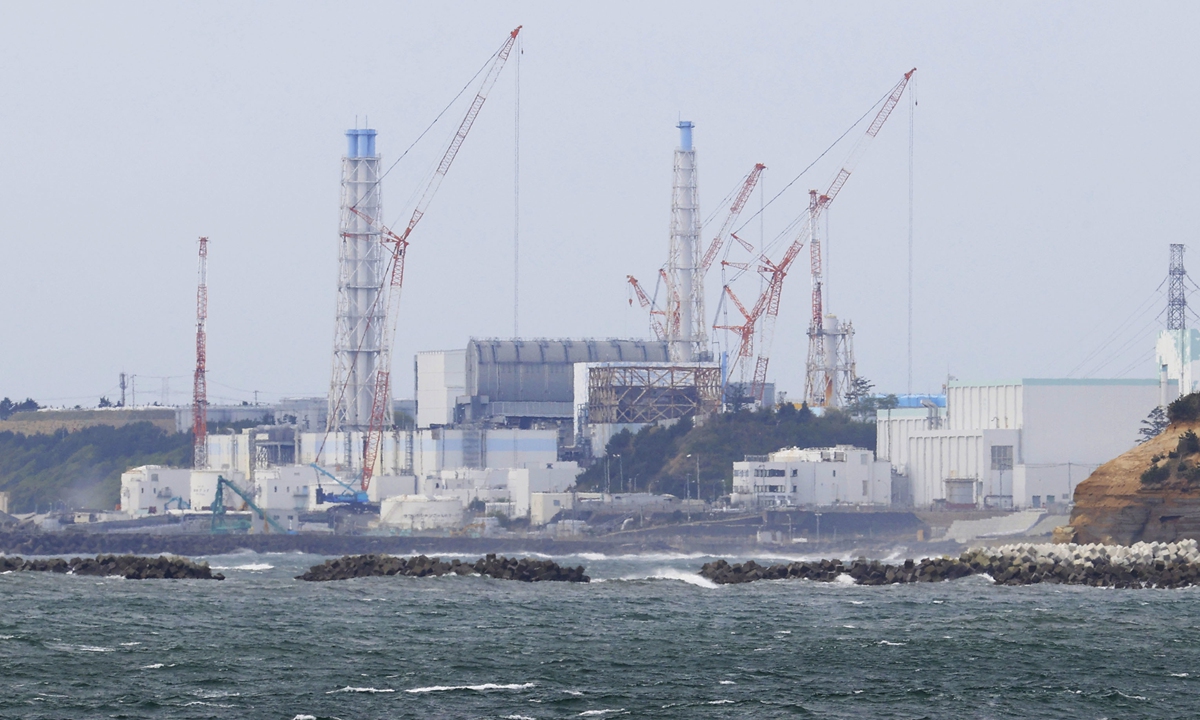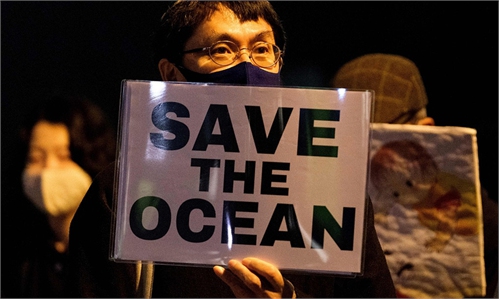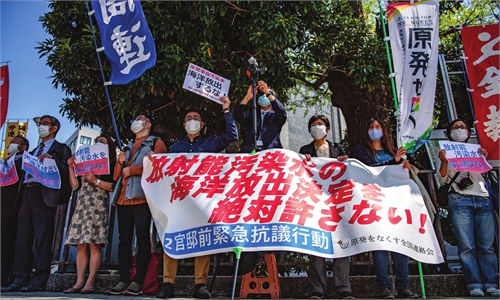
Photo taken from Namie in Fukushima Prefecture, northeastern Japan, on Tuesday shows the crippled Fukushima Daiichi nuclear power plant. Tokyo decided the same day to release radioactive water into the sea. Photo: VCG
Amid international pushback against Japan's decision to dump nuclear-contaminated wastewater from the Fukushima nuclear power plant into the sea, China's Ministry of Ecology and Environment has urged Japan to consider all safe ways of disposal to deal with the issue, as the nuclear-contaminated water is fundamentally different from discharges from other normal nuclear plants.
Regardless of domestic opposition and doubts from the international community, Japan made a unilateral decision to dump the contaminated water into the sea before exhausting all safe ways of disposal or fully consulting with neighboring countries and the international community, the ministry said.
China, as Japan's close neighbor and one of the stakeholders in this issue, has expressed grave concerns.
The Chinese environment ministry urged Japan, which has a responsibility to the international community, to conduct further research on all safe ways of disposal and release related information in a timely and transparent way.
A cautious decision should be made after a careful consideration of all other safe ways of disposal and full consultation with all stakeholders, it said.
The ministry stressed that the nuclear-contaminated water has fundamental differences from the discharge of a normally operated nuclear plant, either in terms of the original source, category of radionuclides, or disposal treatment imparity.
The Fukushima contaminated wastewater came from the cooling water injected into the melted reactor core after the nuclear accident, as well as groundwater and rainwater that permeated the reactor. It contains a variety of radionuclides in the melted reactor core, which are difficult to treat, it said.
Discharges from a normally operated plant are mainly from the technology and land drainage, which contain few fission nuclides. After being treated and strictly monitored under international standards, such discharges are much less harmful than the international standards require, the ministry noted.
The ministry also said that China will evaluate the possible impact of nuclear-contaminated wastewater on the marine environment and strengthen monitoring of the radiation in that environment.



